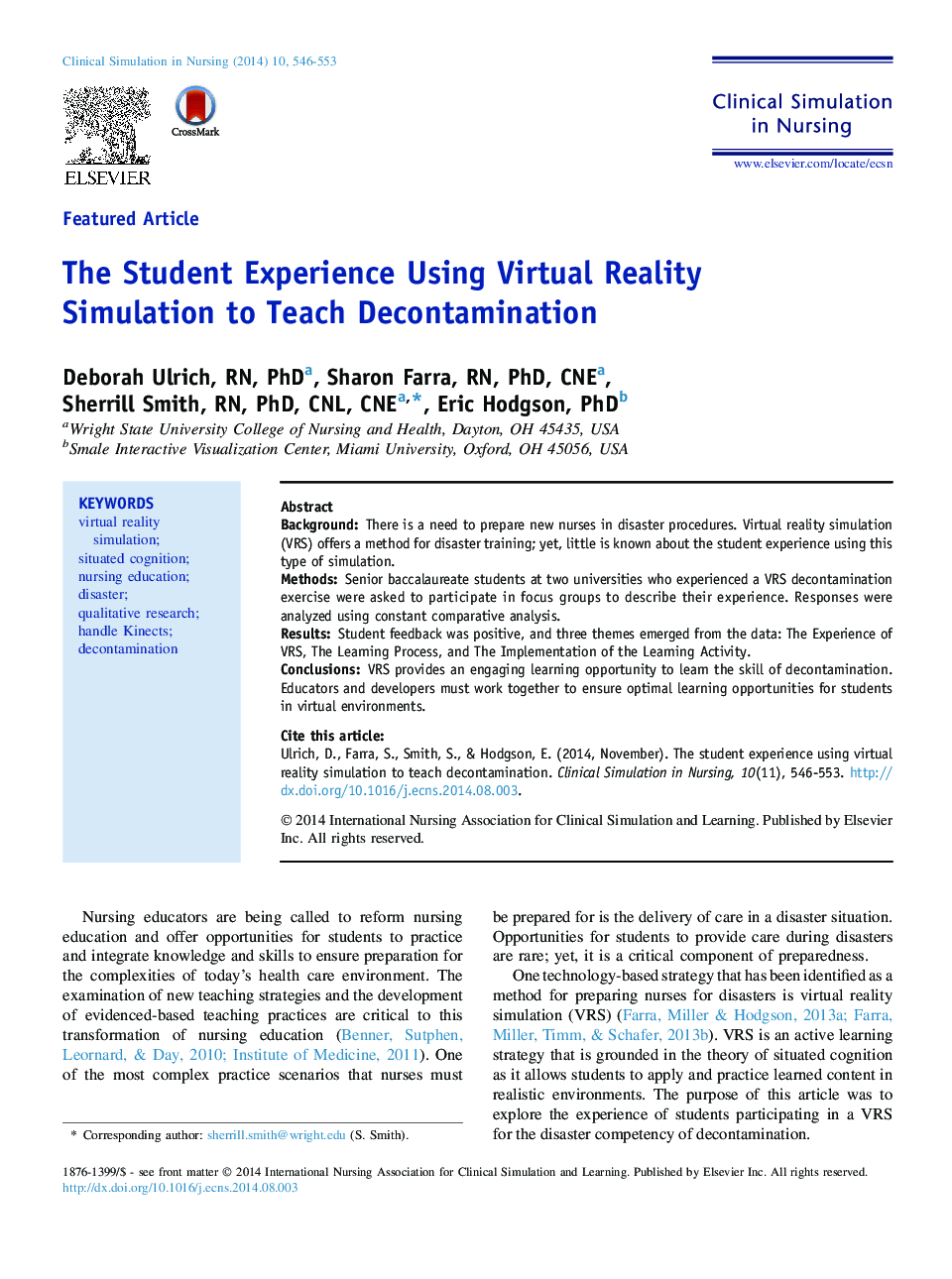| Article ID | Journal | Published Year | Pages | File Type |
|---|---|---|---|---|
| 2646442 | Clinical Simulation in Nursing | 2014 | 8 Pages |
•Virtual reality simulation (VRS) provides an engaging and safe way to learn the skill of decontamination•VRS facilitates the ability to recall information when used in practice•Sequencing of didactic content, VRS, and actual practice enhances learning•Students must be prepared to take part in a VRS experience, especially their first time•Technical issues must be addressed to enhance student satisfaction and learning
BackgroundThere is a need to prepare new nurses in disaster procedures. Virtual reality simulation (VRS) offers a method for disaster training; yet, little is known about the student experience using this type of simulation.MethodsSenior baccalaureate students at two universities who experienced a VRS decontamination exercise were asked to participate in focus groups to describe their experience. Responses were analyzed using constant comparative analysis.ResultsStudent feedback was positive, and three themes emerged from the data: The Experience of VRS, The Learning Process, and The Implementation of the Learning Activity.ConclusionsVRS provides an engaging learning opportunity to learn the skill of decontamination. Educators and developers must work together to ensure optimal learning opportunities for students in virtual environments.
